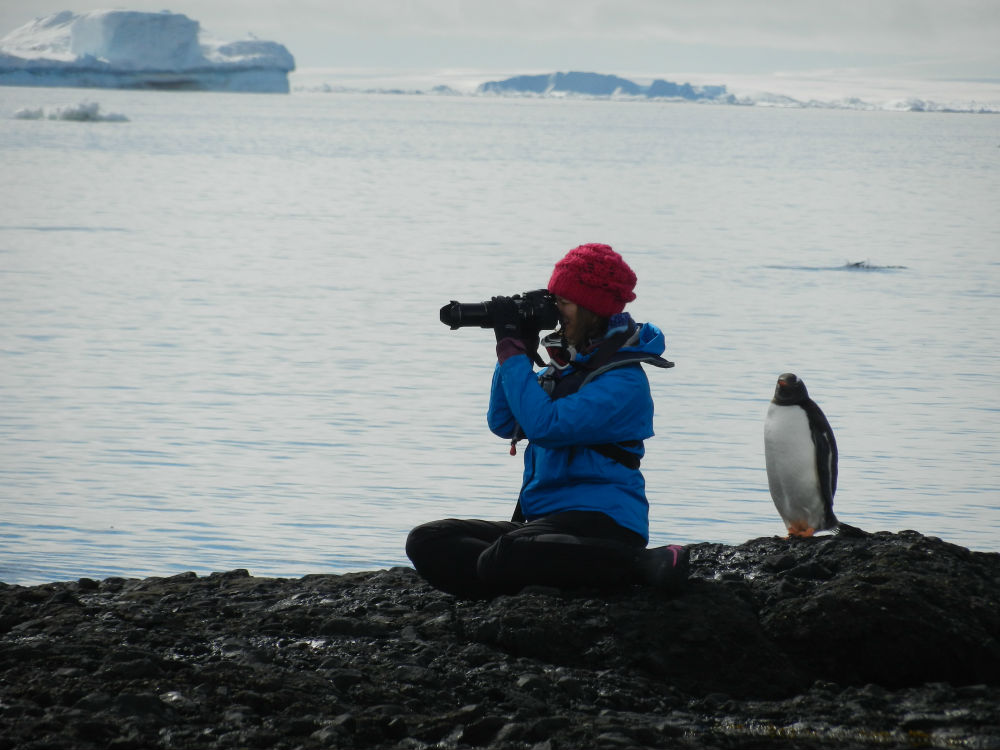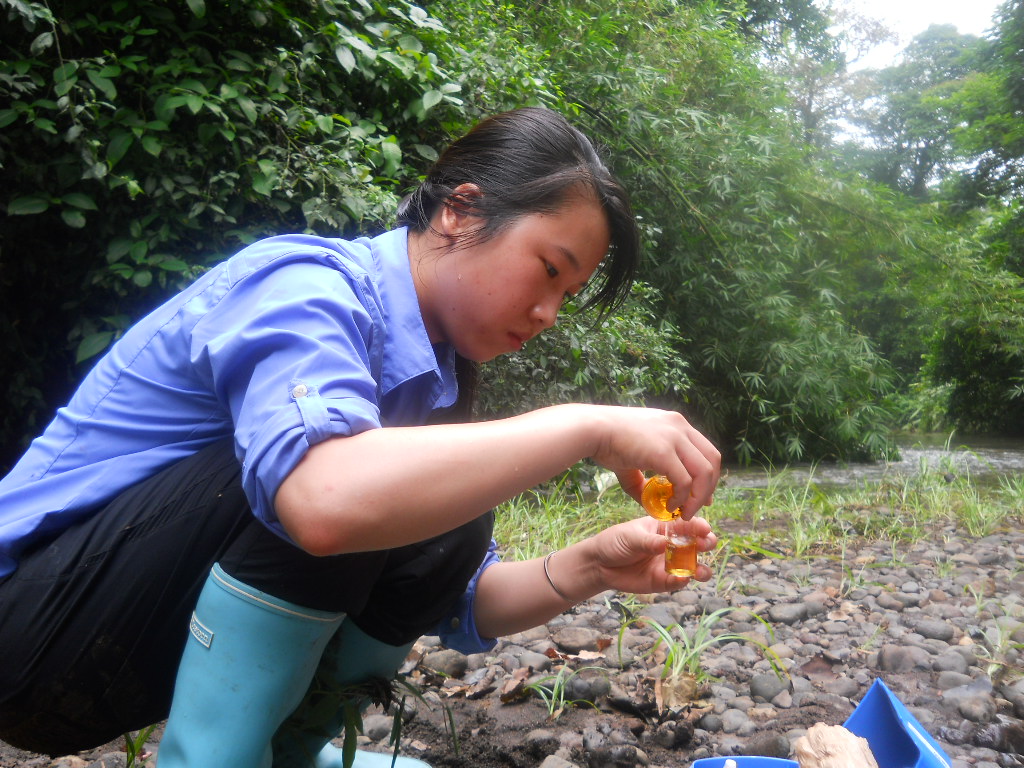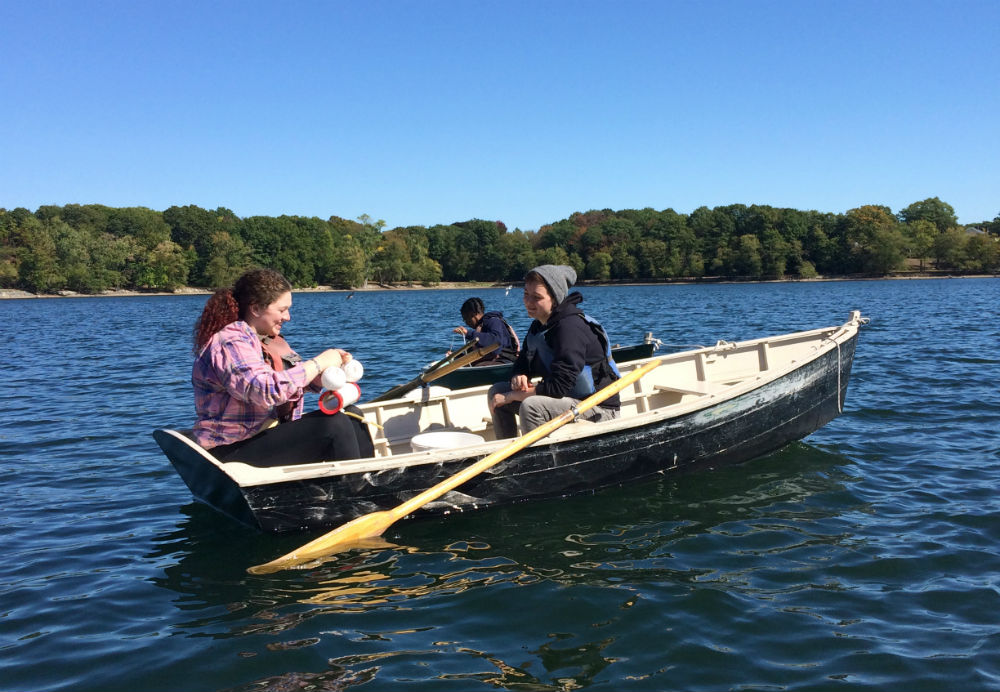Fieldwork is a great way to show students that what they are learning connects to the real world, and brings the SENCER method to life outside the classroom. The winners of our fieldwork photo contest display an impressive range of student engagement near and far, from Antarctica, Costa Rica, and Boston.
We are very pleased to announce our winners!
First Place

This photograph was submitted by Chris Parsons, Associate Professor in the Department of Environmental Science & Policy at George Mason University. Chris ran a field course for undergraduate and graduate students to Antarctica. Pictured is his graduate student Samantha Oester, who is photographing penguins.
Second Place

This photograph was submitted by LaRoy Brandt, Assistant Professor of Conservation Biology at Lincoln Memorial University. As part of a tropical rainforest field course at the LaSuerte Biological Field Station in Costa Rica, students participated in both service learning and conducting their own field research projects. Shown here is a student conducting a field titration to determine the amount of dissolved oxygen in Rio Suerte, information used to inform local villagers about the quality of water in their river. As part of the learning experience, students not only became more familiar with rainforest ecology, but also were able to gain personal ownership in efforts to understand human impacts on the environment.
Third Place

This photograph was submitted by Lisa Lobel, Assistant Professor in the Department of Mathematics and Sciences at Wheelock College. These students are collecting phytoplankton and measuring temperature, dissolved oxygen, and nutrients at different depths to assess the vertical heterogeneity of Jamaica Pond in Boston.
[bctt tweet=”Check out award-winning fieldwork contest photographs and get inspired today!” username=”NCSCE”]
Congratulations to our contest winners, and thank you to everyone who submitted photographs to our contest. Your contributions help bring visibility to the work being done in the SENCER community, and, we hope, will inspire others to take their own work in new directions. You can view a gallery of submissions below, and we are excited to feature these photographs elsewhere on our websites and social media channels. For suggestions for future photo contest themes, please email Christine DeCarlo at christine.ncsce@gmail.com.
